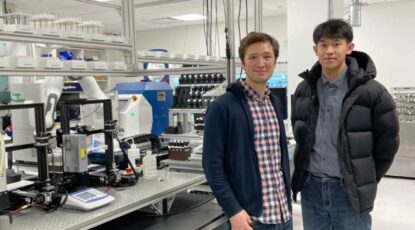Research News
-
Volunteers needed for study: Learn how exposure to ‘forever chemicals’ impacts cancer risk
U-M investigators need your help to understand statewide environmental exposures and cancer risk. Researchers hope to recruit 100,000 Michiganders ages 18-49 from diverse racial and ethnic backgrounds, with a focus on residents in Metro Detroit, Flint, Grand Rapids, Kalamazoo, Lansing, and Saginaw.
-
Chemicals stored in home garages linked to ALS risk
Over the last decade, researchers at U-M have found exposure to environmental toxins — from pesticides used in agriculture to volatile organic compounds in the manufacturing industry — is linked to the development of amyotrophic lateral sclerosis, or ALS. The buildup of exposures is possibly associated with recreational activities such as woodworking and gardening.
-
How trauma gets ‘under the skin’
U-M researchers have found that people who experienced greater childhood adversity, reporting one or more traumatic or adverse events, had poorer muscle metabolism later in life. The researchers say the effects of childhood adverse events remained significant even after they controlled for other factors that could potentially impact muscle function such as age, gender, educational attainment, and more.
-
Better battery manufacturing: Robotic lab vets new reaction design strategy
New chemistries for batteries, semiconductors, and more could be easier to manufacture, thanks to a new approach to making chemically complex materials that researchers at U-M and Samsung’s Advanced Materials Lab have demonstrated.
-
First atlas of the human ovary with cell-level resolution is a step toward artificial ovary
Insights could lead to treatments restoring ovarian hormone production and the ability to have biologically related children, according to U-M engineers. Researchers could potentially create artificial ovaries using tissues that were stored and frozen before exposure to toxic medical treatments such as chemotherapy and radiation.
-
The most precise measurement of our expanding universe
With 5,000 tiny robots in a mountaintop telescope, researchers can look 11 billion years into the past. Now, using the largest 3D map of our cosmos ever constructed, the Dark Energy Spectroscopic Instrument reveals the most precise measurements to date of how fast the universe has expanded throughout its history.
-
Earliest recorded ‘ice-out’ date on Douglas Lake at U-M Biological Station
The ice-out, declared on March 16 this year, comes after the latest-recorded Douglas Lake “ice-in” occurred on Jan. 6 — making this the shortest season of lake ice cover recorded at the BioStation in Northern Michigan: just 70 days.
-
What Ohtani scandal means for his career, fans and team
U-M experts discuss the scandal involving Los Angeles Dodgers player Shohei Ohtani (formerly of the Los Angeles Angels) and interpreter Ippei Mizuhara, who was fired for stealing $4.5 million from Ohtani’s bank account to pay off gambling debts.
-
U-M astronomers conduct first search for forming planets with new space telescope
Planets form in disks of dust and gas called protoplanetary disks that whirl around a central protostar during its final assembly. While such disks have been imaged, just two planets have been caught in the act of forming so far. Astronomers are now aiming the James Webb Space Telescope at protoplanetary disks to find clues about the ways in which planets form, and how they influence their natal disk.










